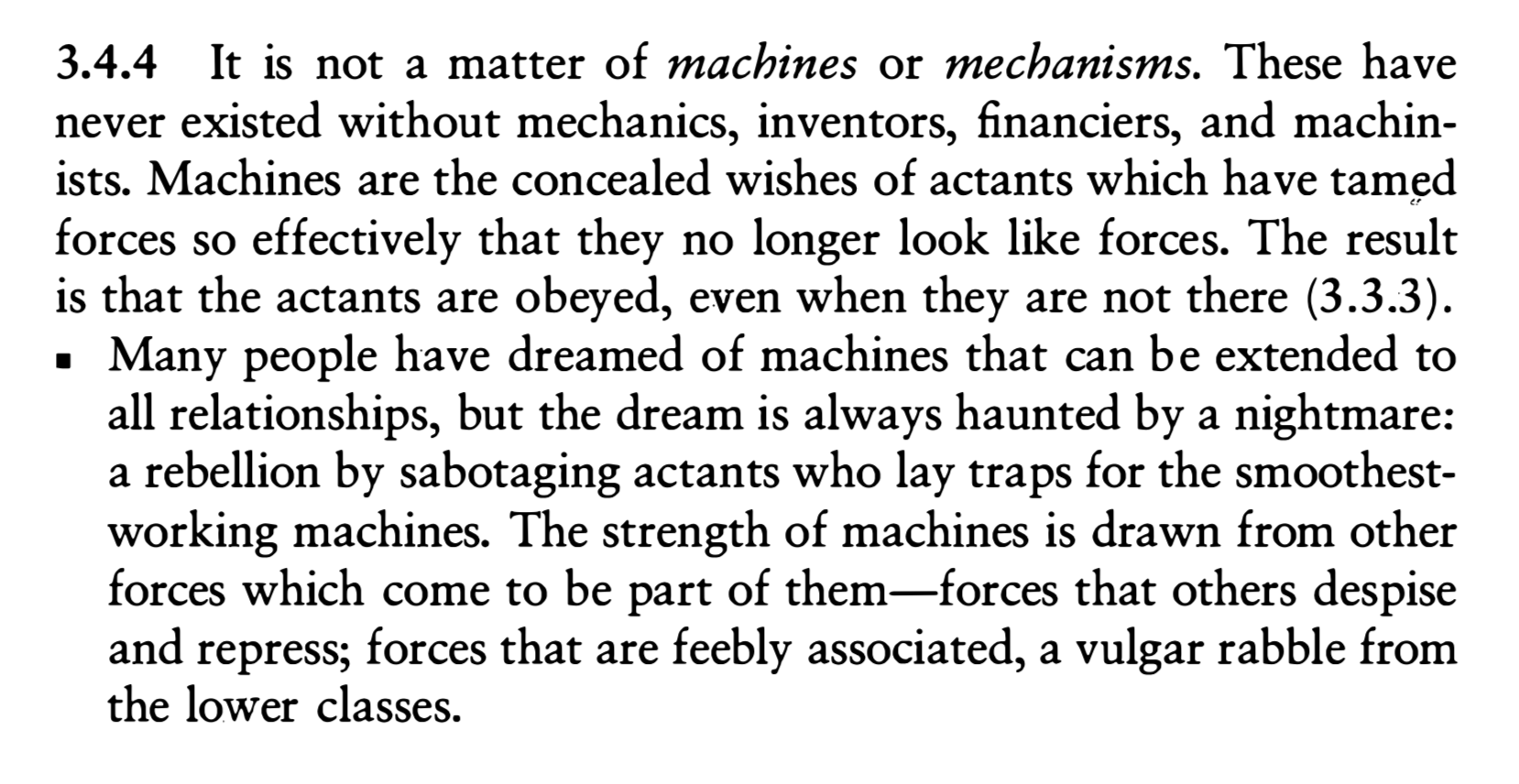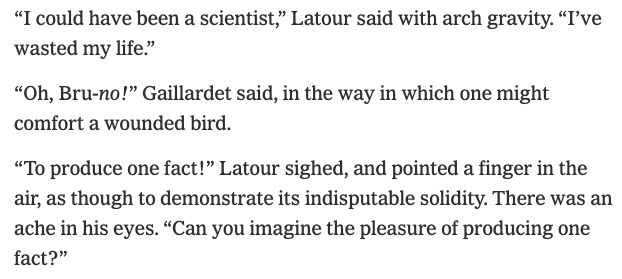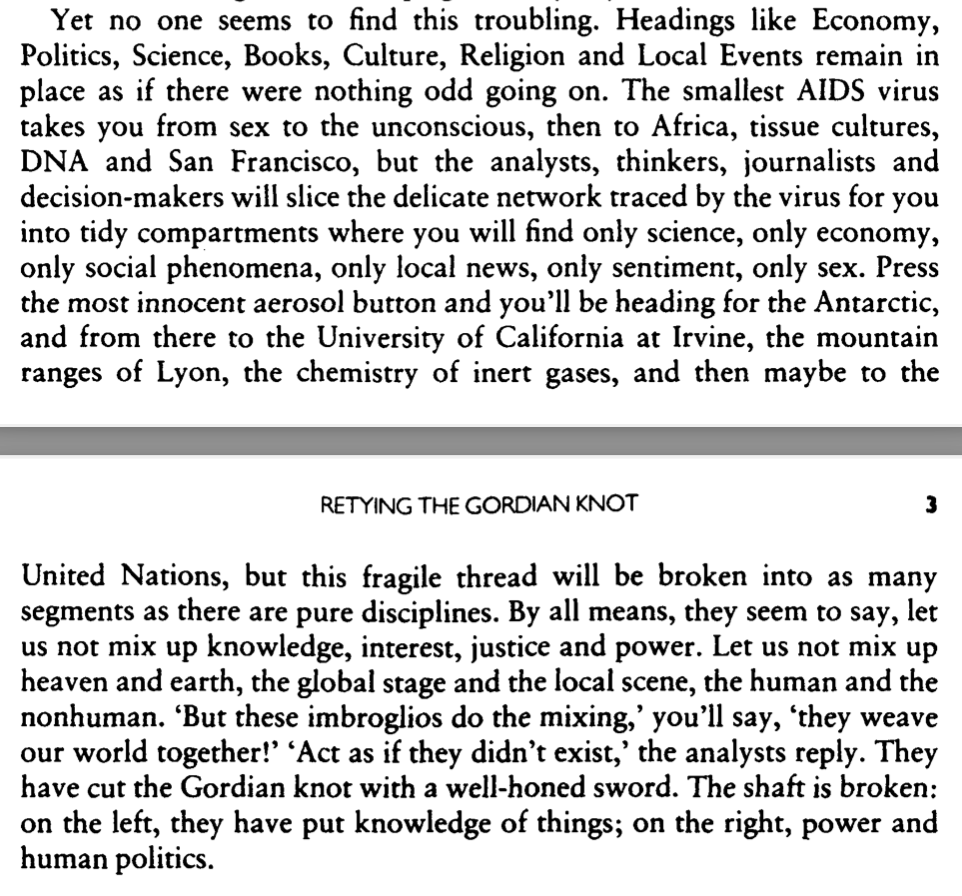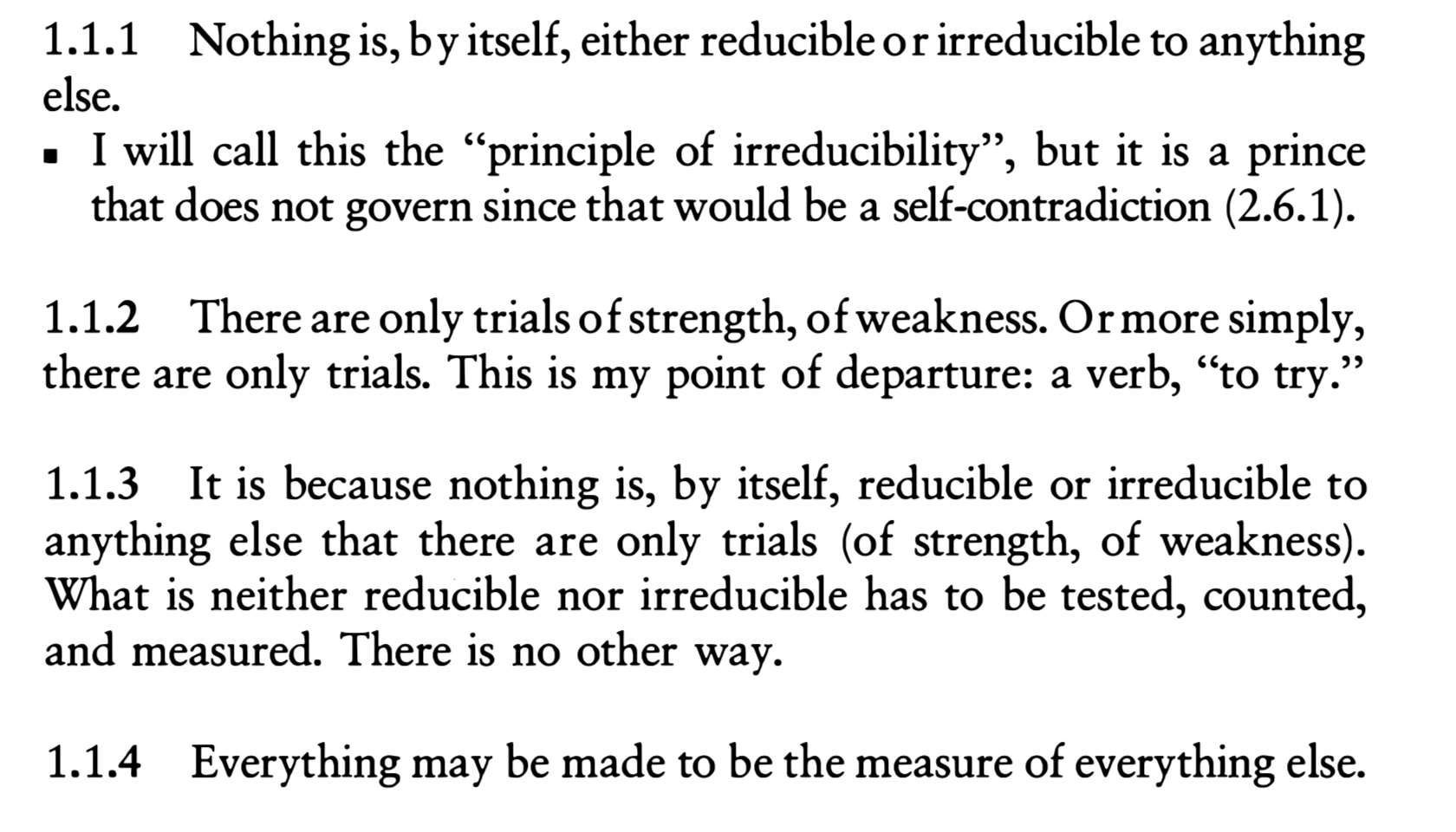Bruno Latour
30 Oct 2021 - 02 Nov 2024
- Latour is probably the most prominent advocate of "the social construction of science". This slogan has been predictably misinterpreted to mean an attitude that is hostile to science and to realism. Latour addressed these concerns in a couple of essays:
- “Do you believe in reality?” —news from the trenches of the Science Wars
I could not get over the strangeness of the question posed by this man I considered as a colleague, yes, a colleague, and who has since become a good friend. If science studies have collectively achieved something, I thought, it must be that they have added reality to science, surely not withdrawn any from it. Instead of the stuffed scientists hanging on the walls of the armchair philosophers of science of the past, we have portrayed lively characters, immersed in their laboratories, full of passion, loaded with instruments, steeped in know-how, connected through many vessels to a larger and more vibrant milieu. Instead of the pale and bloodless objectivity of science, we have all shown, it seemed to me, that the many non-humans mixed into our collective life through laboratory practice have a history, flexibility, culture, blood, in short, all the characteristics that were denied to them by the humanists, on the other side of campus.
- Why Has Critique Run out of Steam? From Matters of Fact to Matters of Concern
Let me be mean for a second. What’s the real difference between conspiracists and a popularized, that is a teachable version of social critique inspired by a too quick reading of, let’s say, a sociologist as eminent as Pierre Bourdieu (to be polite I will stick with the French field commanders)? In both cases, you have to learn to become suspicious of everything people say because of course we all know that they live in the thralls of a complete illusio of their real motives. Then, after disbelief has struck and an explanation is requested for what is really going on, in both cases again it is the same appeal to powerful agents hidden in the dark acting always consistently, continuously, relentlessly. Of course, we in the academy like to use more elevated causes—society, discourse, knowledge-slash-power, fields of forces, empires, capitalism—while conspiracists like to portray a miserable bunch of greedy people with dark intents, but I find something troublingly similar in the structure of the explanation, in the first movement of disbelief and, then, in the wheeling of causal explanations coming out of the deep dark below.
In spite of my tone, I am not trying to reverse course, to become reactionary, to regret what I have done, to swear that I will never be a constructivist any more. I simply want to do what every good military officer, at regular periods, would do: retest the linkages between the new threats he or she has to face and the equipment and training he or she should have in order to meet them—and, if necessary, to revise from scratch the whole paraphernalia. This does not mean for us any more than it does for the officer that we were wrong, but simply that history changes quickly and that there is no greater intellectual crime than to address with the equipment of an older period the challenges of the present one. Whatever the case, our critical equipment deserves as much critical scrutiny as the Pentagon budget.
Older blog posts
- On anti antipolitics
It takes something like courage to admit that we will never do better than a politician. We contrast his incompetence with the expertise of the well informed, the rigor of the scholar, the clairvoyance of the seer, the insight of the genius, the disinterestedness of the professional, the skill of the craftsman, the taste of the artist, the sound common sense of the ordinary man in the street, the flair of the Indian, the deftness of the cowboy who fires more quickly than his shadow, the perspective and balance of the superior intellectual. Yet no one does any better than the politician. Those others simply have somewhere to hide when they make their mistakes. They can go back and try again. Only the politician is limited to a single shot and has to shoot in public. I challenge anyone to do any better than this, to think any more accurately, or to see any further than the most myopic congressman... What we despise as political "mediocrity" is simply the collection of compromises that we force politicians to make on our behalf. If we despise politics we should despise ourselves.
- – Irreductions
Everywhere we direct our best brains toward the extension of "science." It is with them that we lodge our greatest, indeed often our only, hopes. Nowhere more than in the evocation of this kingdom of knowledge do we create the impression that there is another transcendental world. It is only here that there is sanctuary. Politics has no rights here, and the laws that rule the other worlds are suspended. This extraterritorial status, available only to the "sciences," makes it possible for believers to dream, like the monks of Cluny, about reconquering the barbarians. "Why not rebuild this chaotic, badly organized world of compromise in accordance with the laws of our world?"

- Illo credit Be Slightly Evil
Irreductions

- See AI Risk
- Incoming
- A Serious Man – JHI Blog Latour's Catholicism, via Hugo@WS.



